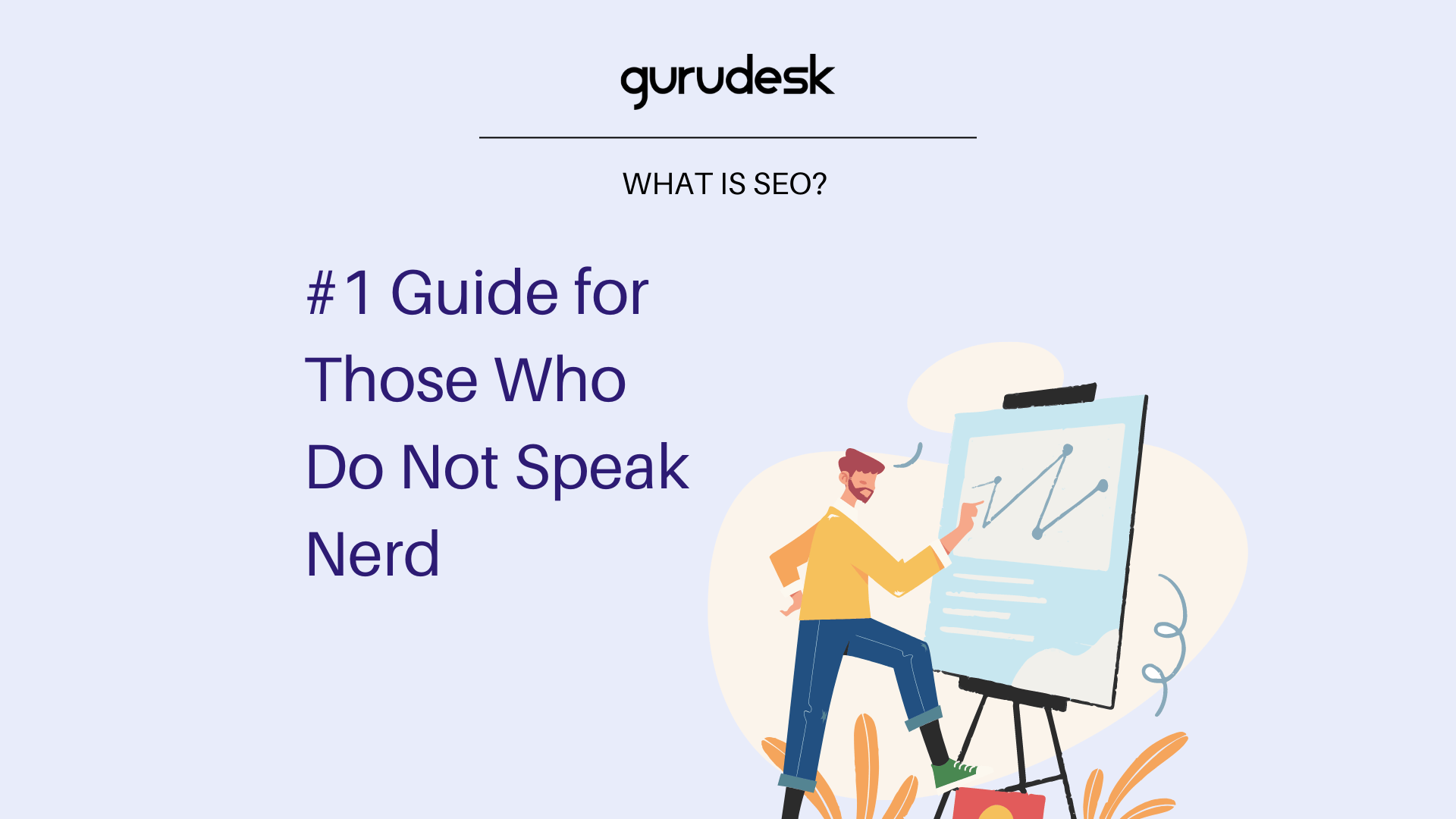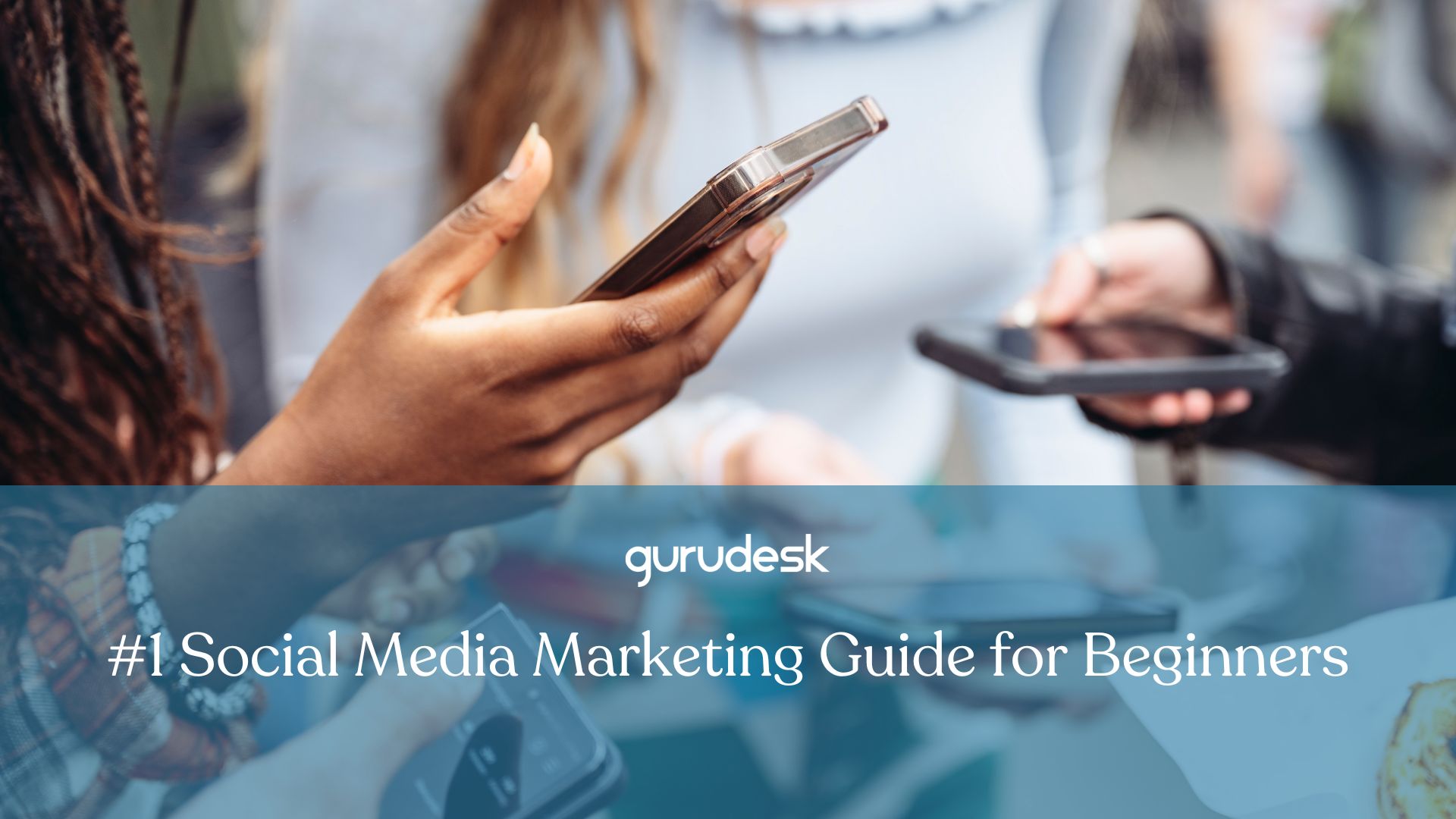
What is SEO?
Just like the name itself suggests, SEO or Search Engine Optimization, is the process of improving the performance and practicality of web pages for organic rankings on search engines like Google, Yahoo, and other search engines.
To appear on the Google Search Page, among the first page options, you must play by the playmaker’s rules, aka Google.
Website owners need to understand the fundamentals of SEO in order to create content that has relevant keywords to boost their websites rankings.
Why is SEO important?

Organic search delivers 53% of all website traffic. Through this statistic, we are able to understand the true importance of SEO since it drives real results for brands, businesses, and organizations, whether they are small or large.
Good Search engine optimization is sustainable. When a paid campaign ends, so does the traffic. This is why it is necessary to build trust through organic results. According to Semrush‘s research, 81% of all searchers on Google click on organic results.
This means you are likely to get five times more traffic by ranking in organic search results compared to paid ads.
What is SEO? SEO Strategy
Developing an effective SEO strategy requires an understanding of your target audience, industry, and competitors.
Here are some factors to consider when developing an SEO strategy:
- Define your Target Audience
- Conduct Keyword Research
- Develop Content
- On-page Optimization
- Off-page Optimization
- Technical SEO
- Analytics
Keyword Research
Blogs include keyword research, which is crucial for SEO. Used as a marker to see which terms rank the highest, search engine optimization practices assist you in generating blog topics that peak your readers interest.
As a new blogger, finding keywords for your own articles will help you create a more meaningful conversation with your audience. Keep in mind that the more specific the phrase or word is, the more closely it’ll match your audience’s intent.

By optimizing the content, tags, headers, images, internal linking, URL structure, and other factors found on your page through the use of on-page SEO, you will be improving your site’s ranking and attracting organic traffic.
Once you’ve selected your keywords, you can use them to help you shape the structure of your content, aligning it with your topic and overall intent to attract your readers attention.
Keyword research tools such as Ubersuggest and the SurferSEO plugin assist when writing a new blog.
Content Marketing
The best way to start creating a seamless presence is by creating quality content that resonates with your audience and customers.
Creating content using the right keywords allows for a parallel with the user’s search intent. Creating blog posts that harbor main keywords searched, grants for another way to achieve off-site optimization.
What is SEO? Types of SEO
Search engine optimization may be broad, however, by incorporating the three, you will be able to attract, engage, and retain a loyal fan base.

1. Technical SEO
Technical search engine optimization, or Technical Optimization, is linked to the more technical aspects of a website: URL structure, navigation, internal links, and more.
Search engines stress how quickly pages load as well as offering a positive user experience. Elements such as mobile device translation, usability, and more all come to play a major role in technical optimization.
If websites are not responsive due to the device being used, chances are customers will click away, which will lead to fewer conversions.
2. On-site SEO
On-site search engine optimization, or Content Optimization, is optimizing the content on a website for users and search engines.
Content optimization focuses on two audiences:
- People, optimize the content your audience will see
- Search engines, help you understand your audience’s wants and needs through the data guidance offered by Google.
When you are optimizing content, there are a few factors you need to consider:
- Create relevant content within your field of experience.
- Perform keyword research to better know what people use to find your content.
- Well-written verbal content, free of spelling and/or grammatical errors.
- Relevant, up-to-date, and containing facts or accurate information.
- Readable and understandable content (make use of subheadings, lists, bullet points, etc…)
- Include visual assets to help decompress your
3. Off-site SEO
Off-site search engine optimization, or off-page optimization, is creating brand assets such as people, values, visions, slogans, and more, and doing things that will ultimately amplify your brand awareness and recognition.
There are multiple ways to contribute to SEO success, whether directly or indirectly. The way to indirectly contribute to SEO is by building links.
Link building involves gathering a diverse number of links pointing at your website from relevant, authoritative, and trusted websites.
Everything your brand does has an impact on SEO and in order to gain quality driven links, you can do it through the following:
| Strategy | Description |
|---|---|
| Brand Building and Marketing | Boost recognition and reputation of the brand. |
| Public Relations | Earn editorially-given links. |
| Content Marketing | Create videos, ebooks, research studies, podcasts, and guest posts. |
| Social Media Marketing | Claim brand handles on relevant platforms to optimize and share content. |
| Listing Management | Claim, verify, and optimize information on various platforms related to the company/website. |
| Ratings and Reviews | Receive, monitor, and respond to ratings and reviews. |
What is SEO? Understanding How Search Engines Work

There are a lot of factors that go into search engines like Google, Bing, and Yahoo that use complex algorithms to scan, index, and rank websites.
When a user enters a search word, phrase, or question, the search engine’s algorithm gathers relevant results from its index and displays them in order of high ranking and quality.
How to Determine Site Relevance
To determine a website’s relevance, search engines evaluate on-page factors such as the page’s content, structure, and keyword usage, as well as off-page factors such as the quality and quantity of external links pointing to the site.
Search engines factor in the following:
- Click rates: CTR is a measure of how often people click on the link after seeing it.
- Bounce rates: are a measure of how many people leave your site after only viewing one page.
- Uptime: The percentage of time that a website or server is available to users. Optimum uptime is 99.9%
The following factors indicate how user-friendly and relevant the website contents are:
SEO practices need to be updated regularly to maximize a website’s content and structure and make sure they are aligned with the best updated practices.
Search engines, such as Google Analytics, constantly update their algorithms to improve the quality of search results, prevent spam and manipulation, and deliver the most relevant and useful content to users.
Paid Search
Online advertisers who utilize paid search, sometimes referred to as pay-per-click (PPC) advertising, are charged every time a user hits one of their ads. The amount of the advertiser’s bid and the level of keyword competition affect the cost per click (CPC).
When people search for particular keywords, advertisers bid on those words or phrases that are pertinent to their business, and when they do so, their ads appear on search engine results pages (SERPs).

Advertisers can target particular audiences based on variables like geography, device type, and demographics and can set a daily or monthly budget to manage their expenditure.
Paid search can be a very efficient approach to bringing in targeted visitors, generating leads, or closing purchases, but it needs to be managed and optimized carefully to yield a good return on investment (ROI).
Popular PPC platforms include Google Ads (formerly known as AdWords), Bing Ads, and Yahoo Gemini.
What is the Importance of Search?
There are hundreds of thousands of searches conducted every year. The main source of organic search traffic for websites is found by searching.
Search Engine via Social Media
Optimizing for search on social media platforms is far different than through Google search. Searching can be done through web search engines such as Google, Social Media platforms such as Instagram and TikTok, or retailer websites like Amazon.
Likes, comments, shares, and saves allow for the opportunity to push content forward to the “Explore” or “For You” pages.
This allows the analytics or algorithm to change, granting similar searches on your page. With a specific set time dedicated to posting, along with hashtags, alt-texts and engagement, you will be able to rank higher and hint at the algorithm to share your content.
SEO Tools
Website owners and online marketers can improve their sites for search engines with the aid of SEO tools, which are programs or web applications. Several popular SEO tools include:
| Tool | Functionality |
|---|---|
| Google Analytics | Monitors user behavior, website traffic, and engagement |
| Google Search Console | Tracks website effectiveness in Google search results |
| Ahrefs | Examines competitors, keyword ranks, and backlinks |
| SEMrush | Conducts competitor research, keyword tracking |
| Yoast SEO | Enhances content for better search engine visibility |
| Screaming Frog | Checks for broken links and technical SEO issues |
These tools can aid with a variety of tasks that can increase a website’s exposure and ranking in search engine results pages, including keyword research, on-page optimization, content analysis, link building, and more.
Content Management System
A content management system is a system that allows its users to create, manage, and modify their content on a website without the use of a coder or coding. One of the best CMS found today is WordPress.
With many pros, it offers a range of SEO-friendly features as well as plugins to help website owners optimize their content for search engines.
SEO and WordPress
If you already have a WordPress site and you’re hoping to make use of it, here are a few tips to keep in mind to maximize your search engine:
| SEO Practice | Description |
|---|---|
| SEO-friendly Themes | WordPress offers themes designed for SEO, featuring clean code and responsive design. |
| URL Optimization | Create descriptive URLs with target keywords to help search engines understand your content. |
| Optimize Titles and Meta Descriptions | Craft unique, keyword-rich titles and meta descriptions for each page to improve search visibility. |
| Meta-description | Write concise summaries (150-200 words) that capture the essence of your content for search engines. |
| SEO Plugins | Utilize WordPress SEO plugins for advanced on-page optimization features. |
| Headings and Subheadings | Organize content with H1-H3 tags to create a clear structure for search engines and readers. |
| Image Optimization | Use descriptive file names and alt tags for images to enhance search engine understanding. |
| Internal Links | Link to relevant pages within your site to establish content relationships and improve structure. |
Search Engine Marketing
Search engine marketing (SEM) is a type of digital marketing that involves promoting a website by increasing its visibility in search engine results pages (SERPs) through paid advertising and search engine optimization (SEO) techniques.
SEM typically includes PPC advertising, where advertisers bid on specific keywords or phrases and pay each time a user clicks on their ad.
SEM also involves optimizing web pages for search engines using on-page and off-page techniques such as keyword research, content optimization, link building, and technical SEO.
By improving the quality and relevance of web pages, they can appear higher in organic search results, which can drive traffic and leads to a website.

What is the Goal of SEM?
The goal of SEM is to increase the visibility and ranking of a website in search engine results, drive more traffic to the site, and ultimately generate more leads or sales.
By combining both paid advertising and SEO techniques, SEM can provide a powerful way to reach a targeted audience and improve a website’s overall online presence.
Blogging and SEO
If you’re hoping to launch your own blogging, photography, or business website, delving into the fundamentals of the internet is an important step, but you need to begin by incorporating SEO’s in your plan.
Writing blog posts takes on a similar form when it comes to SEO, however, finding a suitable, reliable hosting provider is essential for SEO.
GuruDesk is an all-in-one web solutions provider dedicated to offering you a website dedicated to your business. Focusing on performance, speed, security, and 24/7 customer service dedicated to resolving any technical issue that may come forth.
TAGS:
Join the GuruDesk community and be among the first ones to discover the hottest trends in web services! We are a team of web experts and we love sharing our knowledge and experience with our readers! We share tips and tricks on a wide range of topics, including web development, cloud services, and hosting. Whether you are a seasoned pro or just starting out, we promise you will find valuable information here. So go ahead, hit that “Subscribe” button and let the fun begin!






